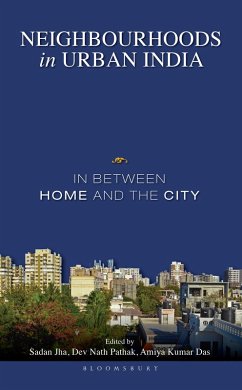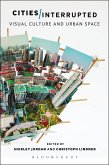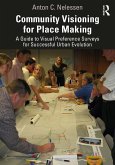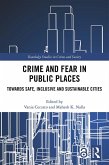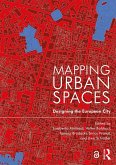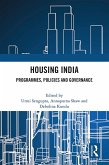'...a brilliant exploration of urbanism between the concept city and the lived city.... The volume focuses on urban life lived between home and the world, institutions and experiences, representations and affects.... Its fascinating range of empirically rich and analytically sophisticated excavations of neighbourhoods make the volume a must-have in the bookshelf on South Asian urban studies.'
-Gyan Prakash, Princeton University
'A must-read for those who wish to study the micro aspects of contemporary urbanity.'
-Sujata Patel, Savitribai Phule Pune University
'This book is a powerful addition to the study of Indian urbanism.'
-Ravi Sundaram, Centre for the Study of Developing Societies (CSDS)
In the last couple of decades, the global South, in general, and India, in particular, have witnessed a massive growth of cities. In India, more than one-third of its population lives in cities. However, urban development, growth and expansion are not merely about infrastructures and enlargement of cityscapes. This edited volume focuses on neighbourhoods, their particularities and their role in shaping our understanding of the urban in India. It locates Indian experiences in the larger context of the global South and seeks to decentre the dominant Euro-American discourse of urban social life.
Neighbourhoods in Urban India: In Between Home and the City offers an understanding of neighbourhoods as changing socio-spatial units in their specific regional settings by underlining the way value regimes (religiosity and subjectivities) give neighbourhoods their social meanings and stereotypes. It unpacks discourses and knowledge practices, such as planning, architecture and urban discourses of governance. It further discloses the linkages and disjunctures between the social practices of neighbourhoods and the language, logic and experiences of dwelling, housing, urban planning and governance, and focuses on the particularities and heterogeneities of neighbourhoods and neighbourliness.
-Gyan Prakash, Princeton University
'A must-read for those who wish to study the micro aspects of contemporary urbanity.'
-Sujata Patel, Savitribai Phule Pune University
'This book is a powerful addition to the study of Indian urbanism.'
-Ravi Sundaram, Centre for the Study of Developing Societies (CSDS)
In the last couple of decades, the global South, in general, and India, in particular, have witnessed a massive growth of cities. In India, more than one-third of its population lives in cities. However, urban development, growth and expansion are not merely about infrastructures and enlargement of cityscapes. This edited volume focuses on neighbourhoods, their particularities and their role in shaping our understanding of the urban in India. It locates Indian experiences in the larger context of the global South and seeks to decentre the dominant Euro-American discourse of urban social life.
Neighbourhoods in Urban India: In Between Home and the City offers an understanding of neighbourhoods as changing socio-spatial units in their specific regional settings by underlining the way value regimes (religiosity and subjectivities) give neighbourhoods their social meanings and stereotypes. It unpacks discourses and knowledge practices, such as planning, architecture and urban discourses of governance. It further discloses the linkages and disjunctures between the social practices of neighbourhoods and the language, logic and experiences of dwelling, housing, urban planning and governance, and focuses on the particularities and heterogeneities of neighbourhoods and neighbourliness.

